Products Description
Exploring the Motives and Consequences of Using Fake IDs
Fake IDs, also known as forged or fraudulent IDs, are created to mimic legitimate documents issued by authorized institutions. These fake IDs are used for a variety of purposes, from circumventing age restrictions to evading legal consequences. While fake IDs are often associated with teenagers looking to participate in age-restricted activities, in fact, a wider range of people use fake IDs for a variety of reasons. This article will explore some of the motivations for using fake IDs, as well as the far-reaching consequences for individuals and society.
1. Access to Restricted Goods and Services
One of the most common uses of fake IDs is to obtain age-restricted goods or services. For example, in states such as Washington and Wisconsin, minors often use fake IDs to purchase alcohol or tobacco. The desire to participate in adult activities before reaching the legal age drives many people to obtain these forged documents.
In other cases, fake IDs are used to gain access to venues that have strict age requirements, such as bars, nightclubs, or casinos. This trend is not limited to young people; some adults use fake IDs to impersonate others or conceal their true identity in order to gain access to restricted areas. In places such as Alaska and Arkansas, certain venues or services may require special identification, so the appeal of fake IDs is more than just circumventing age restrictions.
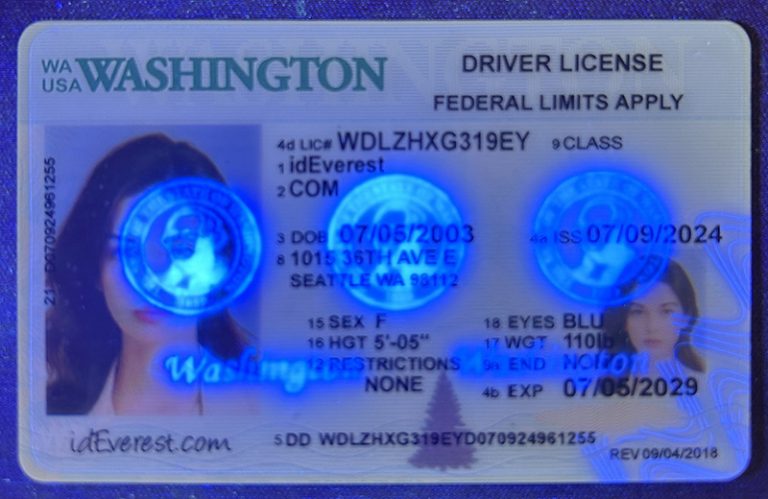
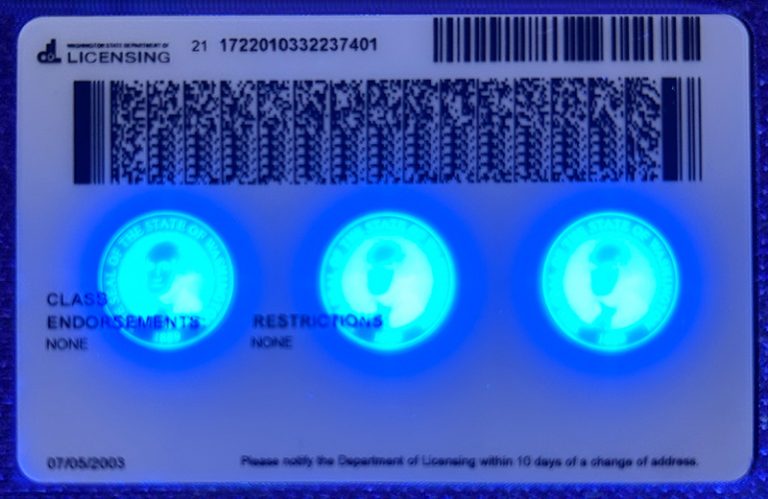
2. Evading Immigration and Legal Restrictions
For non-citizens and individuals with uncertain immigration status, fake IDs provide a means to survive in a strict legal and regulatory environment. For example, a fake Colorado ID or a fake Georgia ID can be used to bypass checks that could reveal an individual's immigration status. By presenting a fake ID, an individual can evade deportation or other legal penalties related to their residency status.
In addition, fake IDs are often used to avoid legal consequences, such as fines or arrest. Individuals involved in illegal activity may use a fake Delaware ID to mask their identity and prevent law enforcement from easily tracking them down. This use of fake IDs to evade legal responsibility can have serious consequences for both the individual and the institution they are defrauding.
3. Obtaining Employment and Educational Opportunities
Fake IDs are also commonly used to obtain employment or educational opportunities that would otherwise be unavailable due to residency or citizenship requirements. In states such as Idaho and Indiana, individuals may present a fake ID in order to obtain a job in an industry that requires proof of residency or citizenship. By using a fake ID, an individual can bypass document checks and avoid legal scrutiny.
This trend extends to educational institutions, where students may use fake IDs to take classes that require legal documentation. Using a fake Kansas ID or a fake Louisiana ID in this case undermines the fairness of these systems and allows individuals to gain access to opportunities they are not entitled to.
4. Social and psychological motivations
There are also often social and psychological motivations for using fake IDs. In many cases, individuals use fake IDs to fit in with their peers or gain access to experiences they feel have been unfairly denied. For example, in states like Maryland and Michigan, pressure to participate in adult social activities such as drinking or gambling can drive young people to seek out fake IDs.
Having a fake ID can also give people a sense of empowerment or control over their circumstances. By using a fake Mississippi ID or a fake Montana ID to assume an alternate identity, individuals can feel as if they are circumventing social constraints, even though this behavior comes with significant risks
5. Technological evolution of fake IDs
In recent years, fake IDs have become increasingly sophisticated. Modern counterfeiters use advanced printing techniques and digital tools to create fake IDs that closely resemble legitimate documents. States such as Nevada and New Jersey have reported an increase in the use of fake IDs that include scannable barcodes, holograms, and other security features that make them difficult to distinguish from real IDs.
This technological complexity presents challenges for law enforcement and the businesses responsible for verifying the authenticity of ID documents. In states such as New York and North Dakota, efforts to combat fake IDs have led to the development of more advanced verification systems, but counterfeiters are still finding ways to adapt to these changes.
6. Consequences of Using Fake IDs
While the short-term benefits of using fake IDs may seem attractive, the consequences are often severe. In the United States, it is a crime to make, use, or distribute a fake ID. Penalties can include fines, jail time, and a permanent criminal record. In states such as Washington and Wisconsin, the legal consequences of being caught using a fake ID can have lasting effects on an individual's personal and professional life.
In addition to the legal risks, the use of fake IDs raises serious ethical issues. Using forged documents undermines the integrity of the legal and regulatory system, erodes trust in the identification process, and leads to broader issues of fraud and deception. Businesses, schools, and government agencies are forced to invest in more sophisticated verification systems, which can increase costs and complicate daily operations.
7. Addressing the use of fake IDs
In response to the rise in fake ID use, many states have implemented stricter laws and regulations designed to discourage individuals from using forged documents. States such as Alaska and Arkansas have imposed stiffer penalties on those who use or distribute fake IDs, while states such as Colorado and Georgia have invested in more advanced technology to verify the authenticity of IDs.
However, the root causes of fake ID use—whether social pressures, legal restrictions, or personal motivations—are complex and require a multifaceted approach to address. Education and awareness campaigns highlighting the risks and consequences of using fake IDs, combined with stronger enforcement efforts, can help reduce the prevalence of fake IDs in the future.
Conclusion
The use of fake IDs, whether to bypass age restrictions, evade legal restrictions, or to gain access to restricted services, poses a significant challenge to law enforcement, businesses, and society at large. The motivations for using fake IDs are varied, but the consequences are clear: legal penalties, ethical dilemmas, and broader societal impacts. As technology evolves, strategies to combat the use of fake IDs must also evolve to ensure the integrity of identification systems is maintained for all.
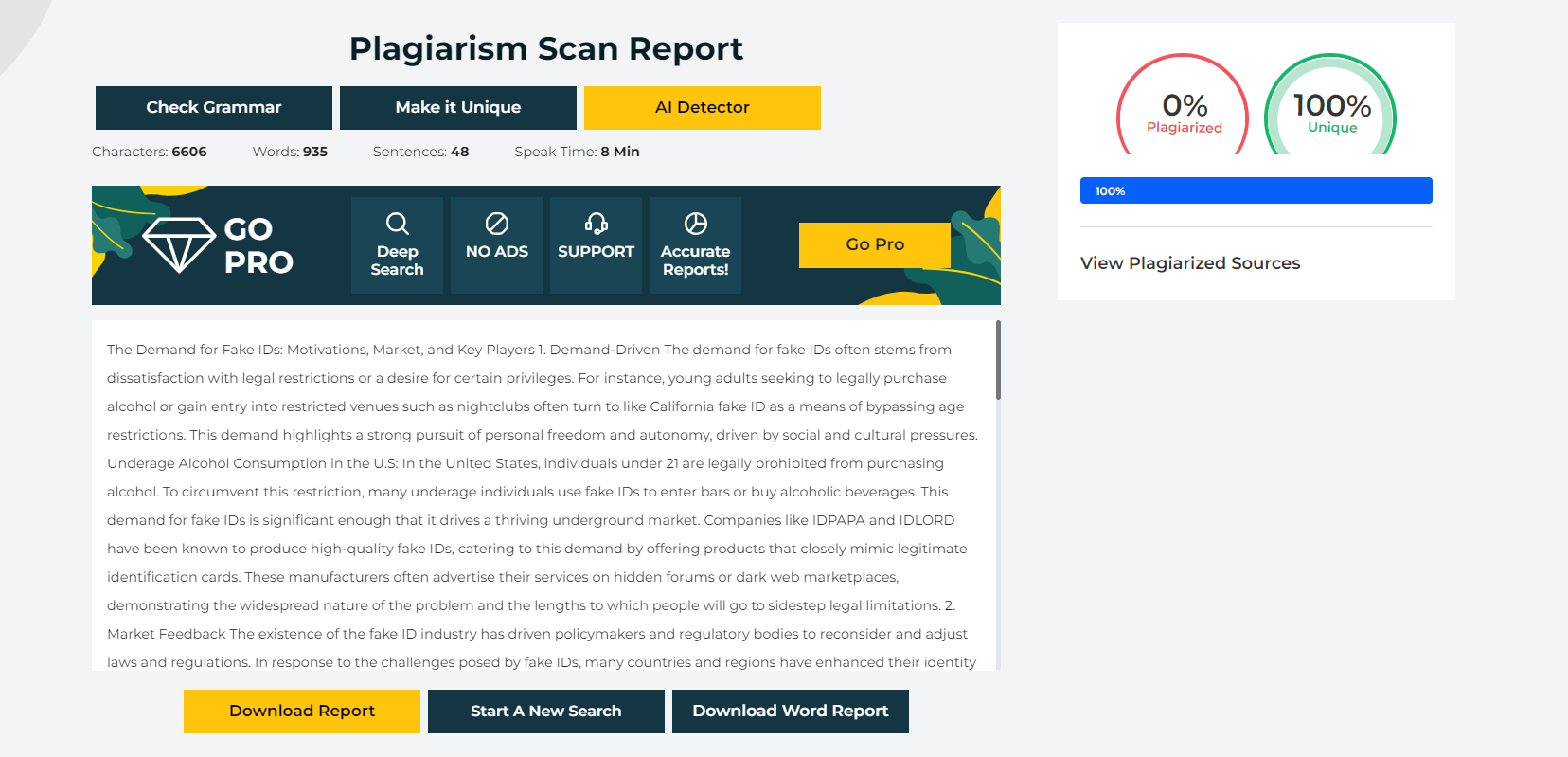
Tags:
You like
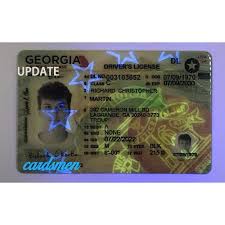
Alabama non driver ID number
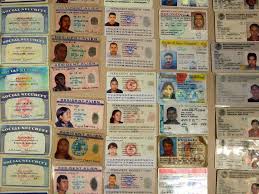
Alabama Driver's license Numbe

Fake md driver's license
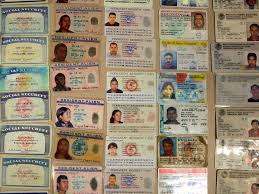
Alabama drivers license check

